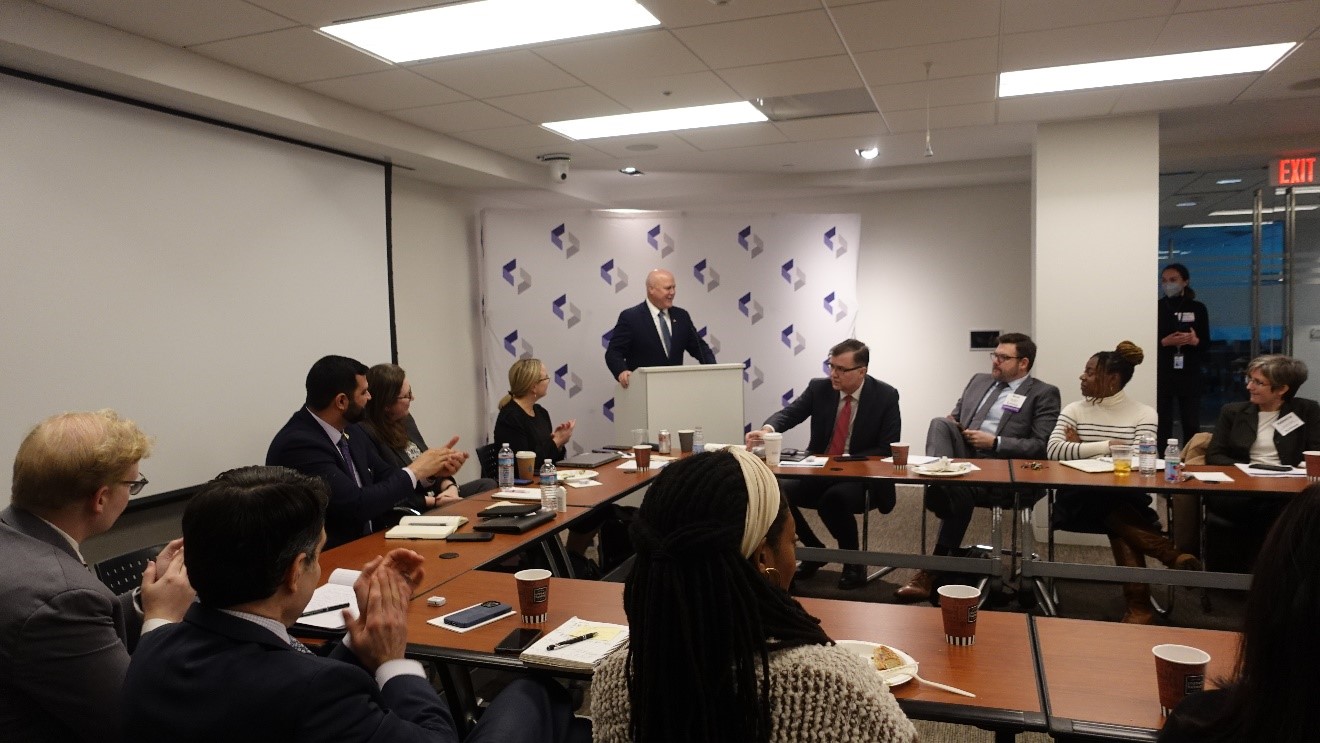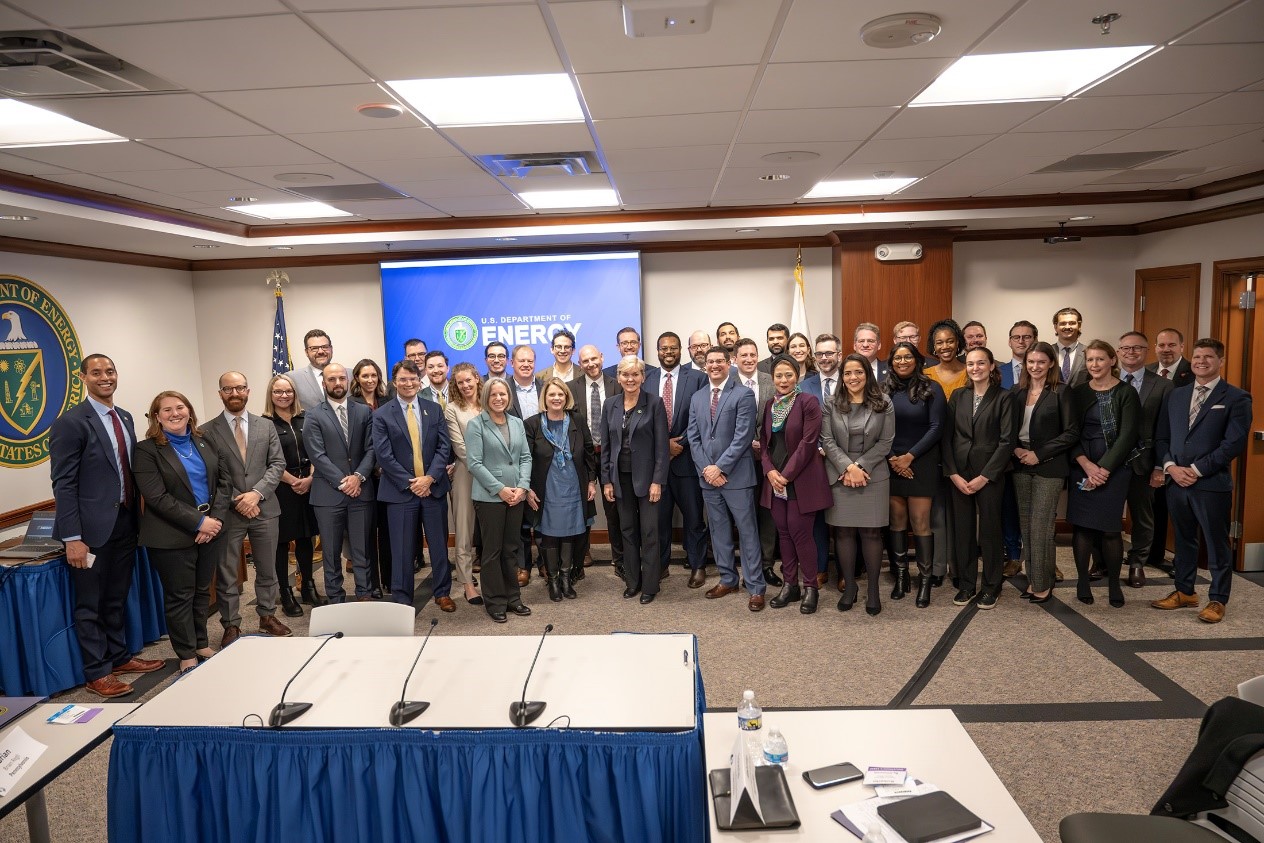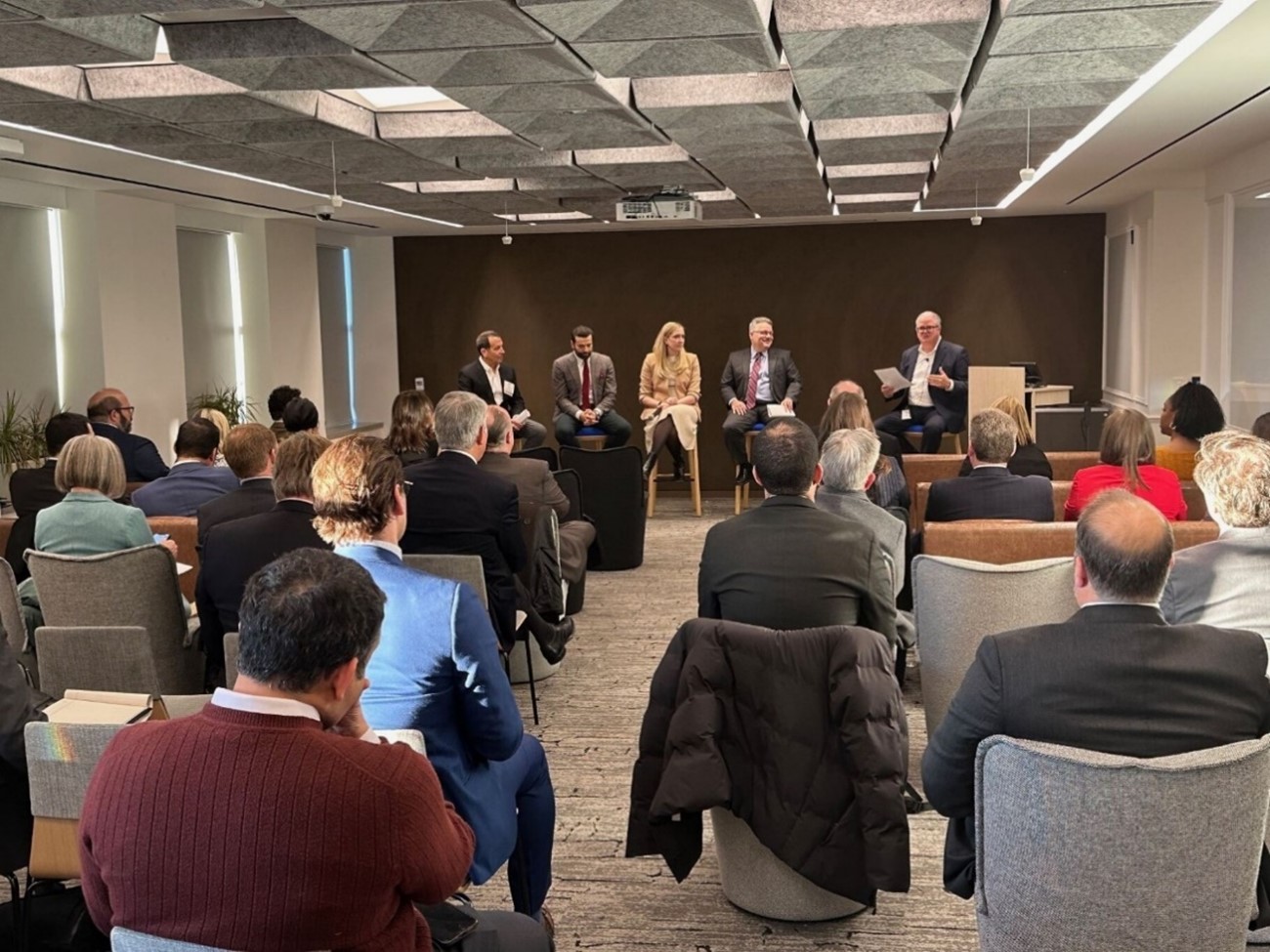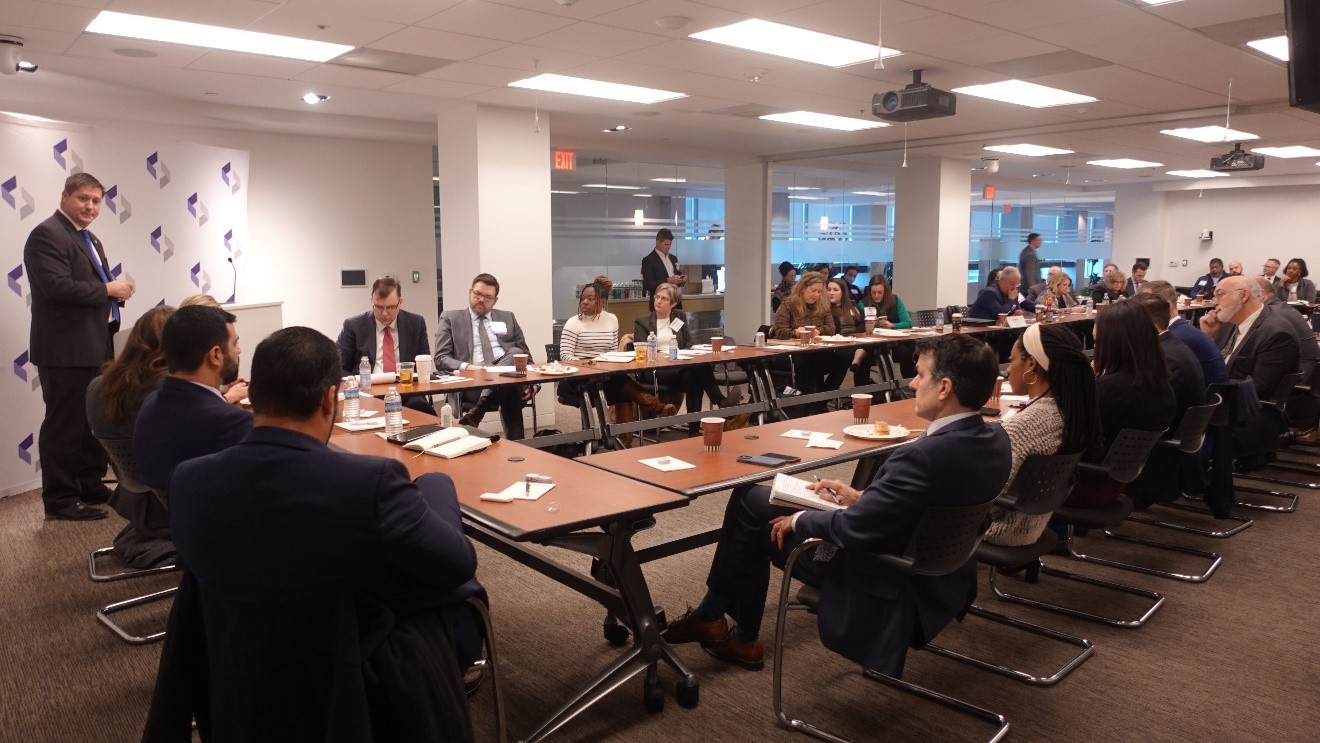On December 12 and 13, 2023, the National Governors Association (NGA) hosted its sixth Quarterly Infrastructure Coordinator Workshop in Washington, D.C. This convening brought together Governors’ Infrastructure Coordinators and Energy Advisors from more than 30 states and territories as well as federal officials and private sector practitioners to discuss a range of infrastructure implementation issues currently facing Governors and their staff members. The meeting focused on the delivery of energy infrastructure in the context of record federal energy funding and tax credits in the Infrastructure Investment and Jobs and Act (IIJA) and the Inflation Reduction Act (IRA).

On the first day of the Workshop, Governors’ Infrastructure Coordinators and Energy Advisors convened at the offices of the U.S. Department of Energy (DOE) for an overview of DOE’s energy infrastructure programs and a discussion on how states and territories can leverage these opportunities to strengthen energy systems and the transition to cleaner energy in their jurisdictions. The discussions kicked off with a presentation from Karen Skelton, Senior Advisor in the Office of the Secretary of Energy, on the $8.8 billion Home Energy Rebates Program – a new initiative to improve energy efficiency that will be administered by State Energy Offices. This was followed by a panel session comprising leaders from the Office of State and Community Energy Programs (SCEP), the Grid Deployment Office (GDO) and the Office of Clean Energy Demonstrations (OCED). During this discussion, Henry McCoy, Director of SCEP, highlighted programs like the $3.5 billion Weatherization Assistance Program for low-income households, the $500 million Renew America’s School Grants program to support energy upgrades in schools and the $260 million in funding for energy workforce development initiatives. Doug Scholtz, Chief Operating Officer at OCED, talked about deploying innovative technologies at scale for true commercial deployment, including opportunities for industrial decarbonization ($6.5 billion available) and innovative projects in rural or remote communities ($1 billion available). Maria Robinson, Director of GDO, underlined progress being made in increasing capacity and improving the resilience of the energy grid through funding opportunities in the IIJA.

Programming at DOE continued with a discussion featuring Jigar Shah, Director of the Loan Program Office (LPO); Zach Valdez, Chief of Staff of the Office of Manufacturing and Energy Supply Chains (MESC); and Gabe Klein, the Executive Director of the Joint Office of Energy and Transportation (JOET). Jigar Shah stressed LPO’s new lending authorities, including the 1706 Energy Infrastructure Reinvestment loan program, which supports the repurposing or replacement of energy infrastructure that has ceased operations, and the State Energy Financing Institution (SEFI) program, which augments state-administered clean energy programs. Zach Valdez from MESC discussed measures to support the battery supply chain to improve U.S. global competitiveness, as well as funding to support the domestic capacity of heat pump manufacturing. Gabe Klein emphasized progress to date in implementing the National Electric Vehicle Infrastructure (NEVI) program and fielded questions on this and other programs from state and territory attendees.
During the afternoon sessions, Governors’ Infrastructure Coordinators and Energy Advisors held productive discussions with leaders from the Office of Energy Efficiency and Renewable Energy (EERE), the Office of Cybersecurity, Energy Security and Emergency Response (CESER), the Office of Energy (OE), the Office of Fossil Energy and Carbon Management (FECM), and the Office of Policy (OP). Mara Winn, Deputy Director at CESER, stressed the importance of cybersecurity for energy systems and clarified that state energy security plans are to be “living, breathing” documents. Jeff Marootian, Principal Deputy Assistant Secretary at EERE, emphasized EERE’s role as the federal government’s clean energy innovation hub, with a focus on research and development and energy efficiency technology. David Nguyen from the Office of Policy provided an overview of clean energy tax credits in the IRA and discussed opportunities to help states and territories implement these in their jurisdictions. Programming at DOE was rounded out by a meet and greet with U.S. Secretary of Energy Jennifer Granholm and an in-depth discussion with DOE Deputy Secretary David Turk.

To complement the discussion with federal partners, Infrastructure Coordinators and advisors subsequently headed to the D.C. offices of Deloitte to discuss the private and non-profit sectors’ perspectives on energy infrastructure investment. This session, which was moderated by Jim Thomson, Vice Chair of Deloitte Consulting, and included Bill Abolt, Vice President at AECOM; Amir Nayeri, Head of Business Development, Americas at Meridiam; Sarah Mathias, Government Relations Director at the American Public Power Association; and Brad Hall, Vice President of External Affairs at Appalachian Power, provided corporate perspectives on the future of energy infrastructure development and dived into critical issues facing states and territories. This includes a discussion on new direct pay provisions and transferability, investor risk calculations relating to clean energy tax credits and partnering with public and investor-owned utilities. This discussion wrapped up official activities for day one of the convening.

On the morning of day two of the workshop, Infrastructure Coordinators convened at the Hall of the States for an informal breakfast with the White House Infrastructure Team and Federal Agency Infrastructure Coordinators. Officials from the White House and federal agencies, including the Federal Permitting Improvement Steering Council, U.S. Department of Transportation, U.S. Environmental Protection Agency, U.S. Department of the Interior, U.S. Department of Commerce, Cybersecurity and Infrastructure Security Agency, Federal Communications Commission and the U.S. Department of the Treasury, provided updates on infrastructure programs and recent award announcements and answered questions from Governors’ Infrastructure Coordinators. Among other programs, participants discussed USDOT’s small/medium bridge grant opportunity, the online portal for entities to pre-register and file for direct pay under the IRA; and state support for CHIPS for America applications. Mitch Landrieu, Senior Advisor to the President and Infrastructure Coordinator, provided remarks on the state of the Biden Administration’s infrastructure efforts and the multifaceted role Governors’ staff plays in implementation. Mayor Landrieu noted that, so far, $400 billion has been allocated for 40,000 projects in 4,500 communities and that the administration hopes to support over 100,000 projects throughout the lifecycle of IIJA, IRA and CHIPS. The morning wrapped up with a fruitful discussion between the infrastructure coordinators on next steps and planning for the next convening.
To follow NGA’s ongoing activities and support for infrastructure implementation, please visit: https://www.nga.org/bestpractices/infrastructure/












